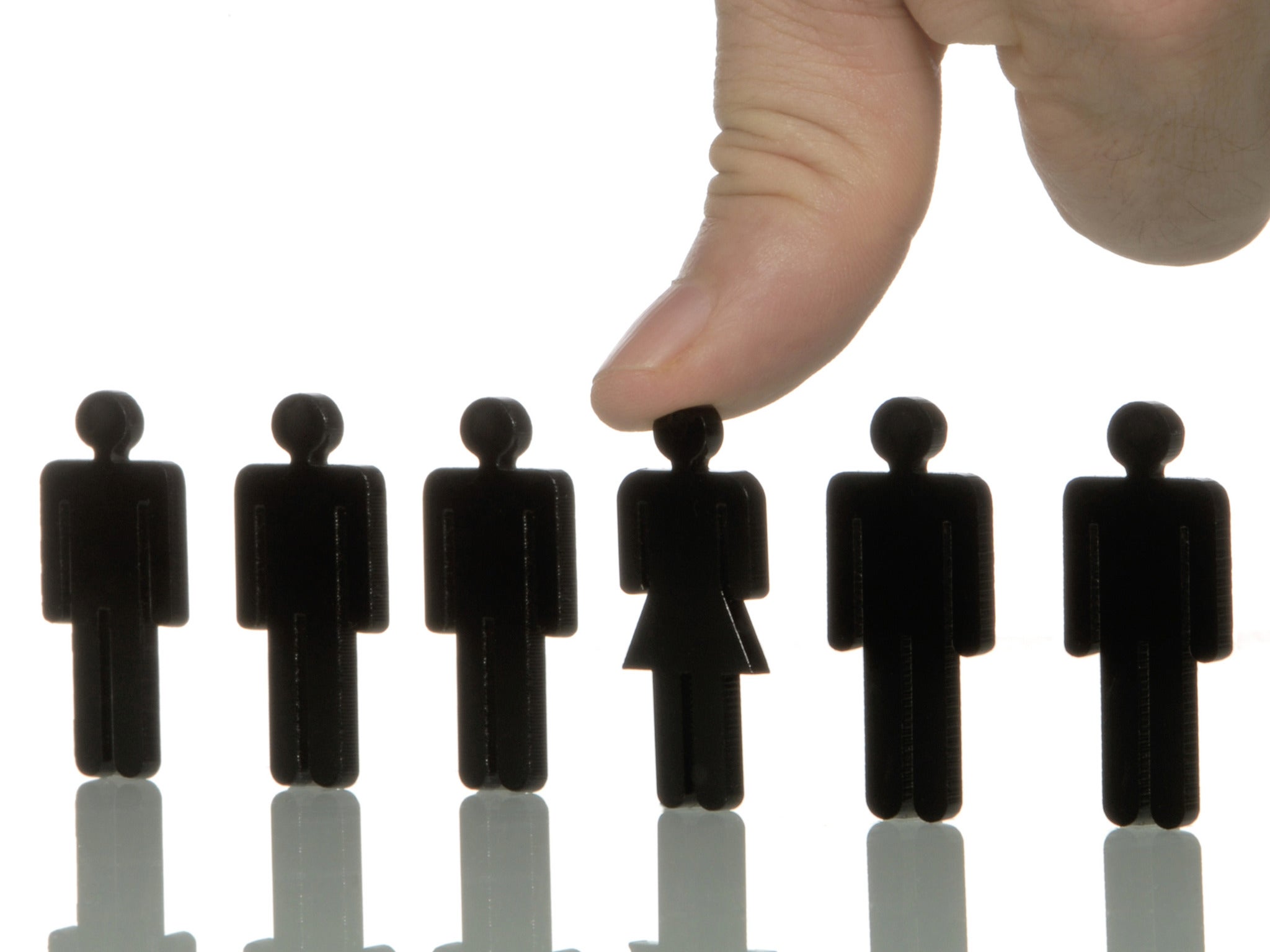Sex and the Office: How men are becoming 'scared' to help female colleagues, according to the research scholar who wrote a book on the matter

Your support helps us to tell the story
From reproductive rights to climate change to Big Tech, The Independent is on the ground when the story is developing. Whether it's investigating the financials of Elon Musk's pro-Trump PAC or producing our latest documentary, 'The A Word', which shines a light on the American women fighting for reproductive rights, we know how important it is to parse out the facts from the messaging.
At such a critical moment in US history, we need reporters on the ground. Your donation allows us to keep sending journalists to speak to both sides of the story.
The Independent is trusted by Americans across the entire political spectrum. And unlike many other quality news outlets, we choose not to lock Americans out of our reporting and analysis with paywalls. We believe quality journalism should be available to everyone, paid for by those who can afford it.
Your support makes all the difference."Are you coming to the pub?”
This is addressed to three men, but not to their female colleague, who is also packing up her things at the end of the day.
If this sounds like a familiar scenario, you may be interested in what one female scholar has to say on the matter.
Dr Elsesser, who used to work on Wall Street for Morgan Stanley, claims in her new book that male executives are often “afraid” to help their female colleagues or invite them to social events in case they find themselves accused of sexual harassment.
She says she became interested in why there were so few women in senior posts at the firm and explores this in Sex and the Office: Women, Men and the Sex Partition That’s Dividing The Workplace.
"I noticed that men had an easier time networking and befriending the male senior management at the firm, and noticed that women were often left out of dinners, drinks or lunches with the senior male managers.
"It wasn’t malicious,” she adds. “It was because the men wanted to avoid even the appearance of impropriety.
When she left the company, she returned to school to research why women were not reaching parity with their male colleagues, and why it is apparently so difficult for men and women to co-exist in the workplace.
"Problems arise when men and women try to establish friendships or mentor relationships,” Dr Elsesser says. “Even outside of the workplace, men and women are more likely to have same-sex friends.
"Adult men and women are less likely to befriend the opposite sex because of different interests, different communication styles, and worry that their friendliness will be misinterpreted as romantic interest."
However inside the workplace, Dr Elsesser notes, there is a heightened awareness of sexual harassment issues, part of an issue which she describes as the “sex partition”: a sort of “hysteria” that prompts male and female colleagues to behave awkwardly around one another.
"Men become nervous that friendliness towards women will be misinterpreted as romantic interest or sexual harassment – both of which could have grave career consequences,” Dr Elsesser says. “As a result men stick with other men, and women miss out on valuable working opportunities.
She suggests that this is more likely to occur the further a person moves up the corporate ladder.
"Men who rise to more senior positions in a company have more to lose from allegations or from misperceptions."
Perhaps this explains why, following on from multiple allegations of sexual harassment made against American Apparel founder Dov Charney, the company responded by banning all managers from relationships with “subordinates”.
Dr Elsesser’s observations are timely considering the recent furore around lawyer Charlotte Proudman, the lawyer branded a “Feminazi” after calling out a man for an allegedly sexist message on Linkedin.
But there has been something of a backlash, both in America and in the UK, by some who feel Dr Elsesser is calling to “set the clock back” on the advancement western society has made in tackling sexual harassment.
"I don't think they actually read the book,” she says, “because I'm not suggesting we've solved the problem of sexual harassment.
“But I do believe we can have it both ways. I believe men and women can maintain appropriate boundaries at work and develop professional friendships and mentor relationships.
"Only a small minority of women are oversensitive when accepting a compliment. However, this small minority can make headlines with their complaints or cause large reactions within an organisation and this leaves men cautious in their interactions with all women.”
Join our commenting forum
Join thought-provoking conversations, follow other Independent readers and see their replies
Comments